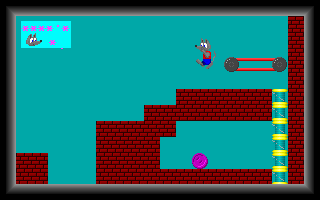

It looks like the working directory is also the user's home directory after the crash.
#PACKRAT R INSTALL#
create an R Project that uses packrat and install a library (say, "xyz") that is not available in the system or user libraries (ie.

PACKRAT® Faculty Guide The PACKRAT guide and its supplement offer faculty information on the PACKRAT exam, including how its blueprint, guiding principles, topic list, exam items, and core tasks and objectives were created, and the continuous. Package Manager correctly handles archiving packages so they can be used by packrat. PACKRAT® is an objective, comprehensive self-assessment tool for student and curricular evaluation. Packrat can track what packages a uses, while RStudio Package Manager makes CRAN and internal packages accessible in an offline environment. They are correctly available if I reopen the project (ie.Rprofile can run source("packrat/inti.R")), and packrat can access the project libraries. Packrat for Reproducibility, Package Manager for Access. You may have lost workspace data as a result of this crash." however when it does restart, the packrat project libraries look like they are available, but they cannot be loaded with library(xyz). Do this if packrat is not available (already installed for r/intel/4.0.3) install.packages(packrat) By default this will install packrat package into a.
#PACKRAT R CODE#
But you get that extra safe feeling with 1-800-PACK-RAT. Make sure you restart R afterwards to restore your packages 2 Obtaining code used for analysis using Packrat. But while PODS has steel frames, 1-800-PACK-RAT has all-steel moving containers.

Only two companies use steel in their containers: PODS and 1-800-PACK-RAT. In using RStudio Server with packrat, if the session crashes, a dialog box will pop up mentioning "The previous R session was abnormally terminated due to an unexpected crash. 1-800-PACK-RAT leads the pack (sorry, bad pun) for container strength.


 0 kommentar(er)
0 kommentar(er)
